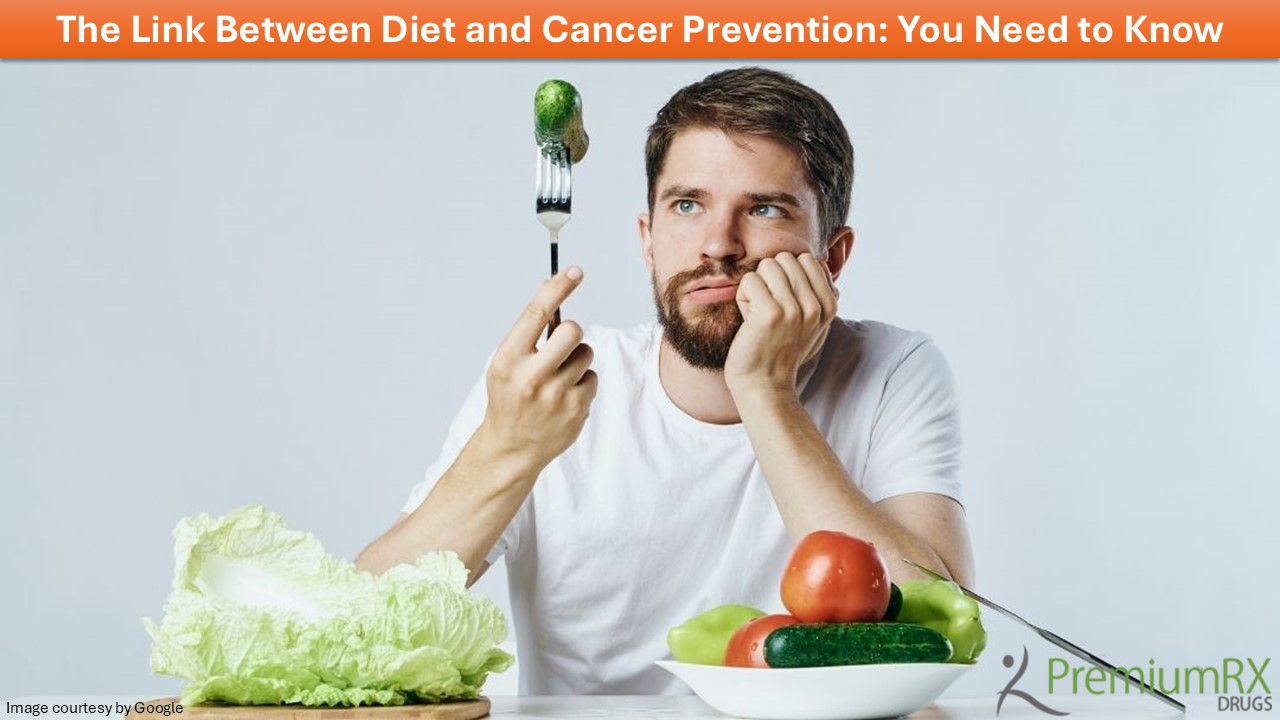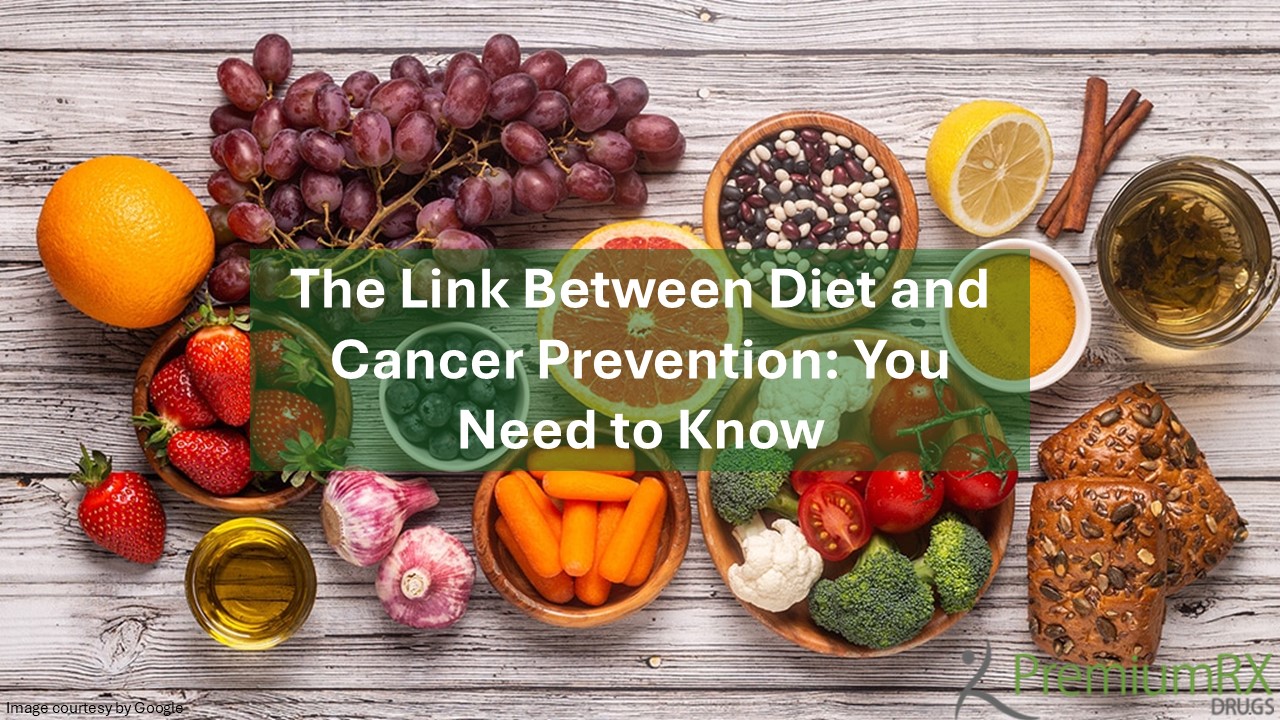Diet is an essential modifiable risk factor for cancer. Research shows that diet modification is crucial in lowering the incidence of some types of cancers. This blog summarises the existing data on diet-related factors for cancer prevention.
Association between diet and cancer prevention
The evidence collected from the American Institute for Research led to recommendations associated with food, nutrition, and physical activity to prevent cancer and improve global health. These recommendations are based on the evidence relating nutritional or dietary components to individual cancer risks.
Vegetables, fruits, milk, and coffee had a protective effect on more than one cancer site. Consequently, nutrients whose main dietary sources are vegetables, fruits, or milk have an inverse connection with cancer, including foods containing selenium, dietary fiber, some carotenoids, flavonoids, vitamins C, D, E, B6, and folates. These foods should be included in everyone’s diet; a diet of these foods is considered the best for cancer prevention.
Food items with an increased risk of several cancers sites include red meat, alcoholic drinks, and processed meat. Foods rich in animal fat, iron, and saturated fatty acids were positively associated with cancer. Other factors are also considered a cancer trigger, such as food preparation (grilling, smoking, or barbecuing), the use of partial hydrogenation of vegetable oils, dietary habits (salt addition), sourcing (arsenic in water), and preservation (salted foods). Additionally, foods high in sugar or high glycaemic load have also been positively associated with some cancers. All these are included in the list of foods to avoid cancer.
Foods and essential nutrients with a potential cancer effect
Research evidence supports an inverse relationship between consuming fruits and vegetables and several cancer risks. According to the American Institute of Cancer Research, fruits were inversely linked to oesophageal, lung, and stomach cancer. Consistent evidence also shows the protective role of consuming fruits against colorectal cancer. Certain vegetables were also linked negatively with lung and colorectal cancers; however, most evidence was rated as limited. A non-significantly reduced risk of stomach and oesophageal cancers was observed for consuming non-starchy vegetables (leafy, green, cruciferous, and allium vegetables), posing a strong association. More recent data supports some of these links but not all of them.
The research report also listed some vegetables as having limited-suggestive protective effects. Consistent evidence shows carrots inhibit a protective role against cervical carcinoma. Allium vegetables have lowered the risk of both stomach and colorectal cancers. Garlic was considered a probable colorectal cancer-protective vegetable; research studies associated it with a non-significantly reduced risk.
Foods containing carotenoids (lung), vitamin C (esophagus), beta carotene (esophagus), dietary fiber (colorectum, esophagus), and selenium (lung, stomach) are presented as cancer-protective food constituents. Carotenoids, selenium, vitamin C, flavonoids, and vitamin E are recognized antioxidants naturally occurring in fruits and vegetables. These essential micronutrients assist cancer by catching free radicals and guarding against the damage caused to DNA. Evidence supports the protective role of dietary fiber against oesophageal and colorectal cancers. Dietary fiber is believed to dilute toxic substances, limiting gut exposure to their possible carcinogenic effects.
Coffee
An adequate amount of evidence existed to suggest a strong probable dose-response link between coffee and endometrial and liver cancers. Coffee has been shown to protect against cancer development in the endometrium. The cancer-protective effect of coffee may be attributed to caffeine and other bioactive components such as polyphenols, chlorogenic acid, and their metabolites. These constituents of coffee are believed to have antioxidant properties that play an important role in the regulation of DNA repair, inflammation, and apoptosis and affect glucose tolerance and hormonal activity.
Milk
Consumption of milk has been shown to have a protective effect on bladder and colorectal cancers. Indeed, both dietary calcium and food containing vitamin D have a protective effect for colorectal cancer. Dietary calcium, vitamin D, and other bioactive milk components such as glycans and lactoferrin may mediate the protective effect of milk for some cancer types through their antiviral, anti-inflammatory, and antimicrobial properties. However, some milk constituents may hurt other cancer types. There was a limited positive link between cheese and low-fat milk and the risk of cancer of the prostate. In a recent research study, cheese, high dairy milk, calcium, fat, vitamin D, and protein from dairy but no other sources were positively linked to cancer risk. This could be due to the effect of the consumption of high calcium on lowering circulating vitamin D or milk on elevating circulating Insulin-like growth factor levels with both prostate cancer and hepatocellular carcinoma. Interestingly, high insulin growth factor- 1 level were also associated with increased colorectal risks. At the same time, milk tends to induce a protective effect, suggesting a more complex role of milk constituents at different sites.
Foods with a potential cancer promotive effect
These are the cancer-causing foods and should be avoided:
Alcoholic drinks
Alcohol is a well-established independent risk factor for cancers in the liver, colorectal, female breast, esophagus, pharynx, oral cavity, and larynx. Chronic alcohol consumption may cause systemic inflammation and metabolic dysregulation, ultimately causing liver damage and progression to cirrhosis.
Red and processed meat and foods high in fat
Excessive consumption of red or processed meat was associated with cancers in several sites. Convincing and consistent evidence existed for the increased risk of colorectal cancer. A more recent analysis suggested a positive effect of both red/processed meat on lung cancer development. Stomach cancer was also associated with processed but not red meat intake. Another study reported red meat intake was associated with an increased risk of gastric cancer.
Trans fatty acids
Intake of trans fatty acids from hydrogenated vegetable oils may elevate the risks of developing different types of cancer. Thus, cancer prevention should consider suppressing trans-fatty acids in highly processed foods.
High in sugar foods
A high intake of some fats and sugars converted to fat may indirectly contribute to increased body adipose tissue content. A high-sugar diet may also increase circulating tumor promoter insulin growth factor-1 levels.
Verdict!
A diet high in fiber with various whole plant foods and low in fat may reduce the risk of cancer, particularly in people who are at increased risk. If you have a condition that requires a special anticancer diet, consult a healthcare specialist before beginning any cancer prevention diet. Your healthcare professional will recommend the best diet to prevent cancer.
Marie
Latest posts by Marie (see all)
- Glow Up: How Tri-Luma Cream Can Revitalize Your Skincare Routine - September 10, 2025
- Careprost in Australia: Enhance Your Eyelashes Safely and Effectively - September 9, 2025
- Complete Guide to Buying Prescription Drugs Online from India - September 2, 2025




